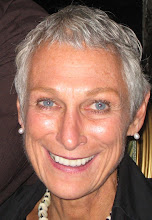It was a day of memorable meetings for and about the hospital. Sometimes I have to pinch myself just a little because it’s hard for me to believe that my world is opening up as it is. I don’t delude myself about the fact that the world is the world. It has always been as wonderfully complex and interesting as it was today. It’s just that I’m experiencing new parts and I’m thrilled.
I think it would be accurate to say that Americans have been cloistered. Or perhaps a more accurate statement is that Americans of certain generations were cloistered. My generation was certainly among the last to live with mistaken notion that the best of everything was from the US. Perhaps there was a time, especially post World War II, when that was true. The ‘50s were a decade of incredible economic growth and prosperity, and the ‘60s were a decade of unparalleled social upheaval and change. Let’s hear it for sex, drugs and rock and roll. But while we were thinking that the best of everything was in the US, we missed amazing changes that were taking place in the rest of the world.
The Hospital of Hope has introduced me to a number of individuals and NGOs, non-governmental organizations or nonprofits, that work globally. Their scope is vast, their organizations are effective and efficient, and their impact is far-reaching. Last week, I wrote Tostan, the organization that works on health and empowerment of women with a special focus on prevention of female genital mutilation. Today, I met with Marie Stopes International, an organization that is a for-profit corporation in Britain, but in the 43 other countries where it has operations, it is an NGO. Its focus is birth spacing, family planning and reproductive rights.
MSI is smart. They take their services to the population that has a need for family planning and they do it through a variety of delivery modes. My favorite is mobile outreach…a doctor, a nurse, a driver take the services into the regions where transportation and healthcare are not available. MSI also engages in “social franchising,” which means they train and credential physicians who want to use the curriculum and products that Marie Stopes International has perfected, and then, they engage in quality control testing to be sure that the service delivery meets their standards. Cooperating physicians also get assistance with the setting up the clinical business operations so that they run efficiently. MSI also has its own clinics, which they sometimes operate as stand-alones and sometimes as units within existing and well-functioning healthcare facilities.
There’s ingenuity, flexibility and creativity in their approach to the global need for family planning. I really appreciate that, especially because nonprofits and NGOs generally are perceived as not being well run…not urgent, not smart, not fast, not well managed, not tuned into the consumer’s needs, not using research to figure out what’s being done well and what’s being done poorly.
Based on what I heard and saw today, that’s not true. NGOs can be innovative as well as effective, especially when they work with social entrepreneurs who are bringing best business practices to the nonprofit sector.


No comments:
Post a Comment